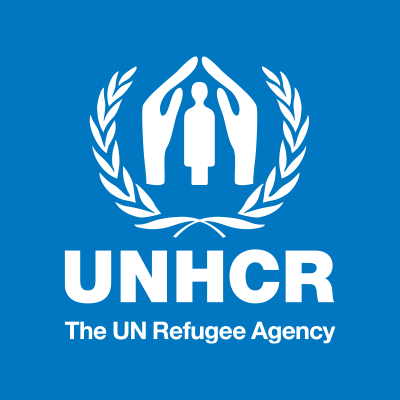UNHCR and IOM call for improved safeguards for the displaced on the frontlines of climate emergency
UNHCR, the UN Refugee Agency, and the International Organization for Migration (IOM), are calling on states to strengthen the protection and assistance of people displaced in the context of disasters and climate change, ahead of a virtual conference co-hosted today, 4 February, with PDD, the state-led Platform on Disaster Displacement, currently chaired by the Government of Fiji, with the Government of France as vice-chair.
The virtual event is held to commemorate the five years since states established three key frameworks to find solutions for people displaced in the context of disasters and climate change– the Nansen Initiative Protection Agenda, the Sendai Framework for Disaster Risk Reduction and the Paris Agreement under the United Nations Framework Convention on Climate Change (UNFCCC).
This commemoration also comes on the heels of two bilateral Memoranda of Understanding signed by IOM and UNHCR with PPD on 9 December, to renew their commitments on disaster displacement.
The memoranda formalize the long-standing partnership between IOM, UNHCR, and PDD and come as the climate emergency has converged with the COVID-19 pandemic, ongoing conflict, record numbers of forcibly displaced, economic turmoil, and growing social upheaval.
“From South Sudan, to the Sahel, to the Dry Corridor in Central America, refugees, internally displaced and stateless people are often among the first to be affected by the climate emergency,” said Filippo Grandi, the UN High Commissioner for Refugees. “We need to invest now in preparedness to mitigate future protection needs and prevent further climate caused displacement. Waiting for disaster to strike is not an option.”
UNHCR, IOM, and PDD, together with partners, are committed to implementing the recommendations of the Nansen Initiative Agenda for the Protection of Cross-Border Displaced Persons in the Context of Disasters and Climate Change, the Paris Agreement on climate change and the Sendai Framework for Disaster Risk Reduction.
At the event, participants will take stock of achievements and share effective practices regarding disaster displacement in the implementation of the Sendai Framework, the Paris Agreement and the Nansen Initiative Protection Agenda. They will also identify opportunities and conditions for scaling up advocacy and action and ensure policy coherence across relevant policy and action areas.
The Nansen Initiative Protection Agenda, endorsed by 109 states in 2015, offers states a toolbox to better prevent and prepare for displacement before a disasters strike. When displacement cannot be avoided, it helps states improve their responses to situations when people are forced to find refuge, either within their own country or across an international border. With the adoption of the Global Compact for Safe, Orderly and Regular Migration and the Global Compact on Refugees in 2018, the measures endorsed in the Agenda, were taken forward by States in committing action for migrants and refugees in the context of disasters, climate change and environmental degradation.
The historical adoption of the Paris Agreement on 12 December 2015 at the 21st UNFCCC Conference of the Parties (COP21) in Paris, France, was also an unprecedented breakthrough for integrating migration and displacement concerns in a climate change treaty. COP21 mandated the creation of a Task Force on Displacement (TFD) to develop recommendations for integrated approaches to avert, minimize and address displacement related to the adverse impacts of climate change. IOM, UNHCR and PDD are founding members of the TFD since 2017 and are currently implementing its second mandate.
“Five years after the adoption of the Paris Agreement, the UN Network on Migration, was established to support the implementation of the Global Compact for Migration, has determined climate change and migration issues as a key priority for 2021,” said António Vitorino, IOM Director General. “It represents a significant opportunity to enhance our collective action, especially ahead of the COP26. As the Coordinator of the Network, IOM is fully committed to enhance a UN-wide action on this topic.”
The Global Compact on Refugees, adopted by an overwhelming majority in the UN General Assembly in December 2018, also directly addresses these growing challenges and is another opportunity to strengthen our collective action in this area.
The Sendai Framework for Disaster Risk Reduction adopted by the UN General Assembly in 2015 represents the global blueprint for all efforts aiming to reduce the impacts of hazards on people, communities, and societies over the following 15 years, and has significantly advanced the discourse on migration and displacement linked to disaster risk reduction. In particular, UNHCR and IOM supported the development of the Words into Action guidelines on disaster displacement.
The virtual conference is a reminder of the strong connections among these three frameworks in the larger context of the Agenda 2030 for Sustainable Development adopted in 2015. It also highlights that five years on, we are in the moment of regional and national action to implement these frameworks for a stronger resilience and protection of people in the face of disasters and the adverse effects of climate change.
The virtual conference begins at 0845 CET. It is open to the public and participation can be registered for the high-level panel session here: http://bit.ly/3ciEG5P and for the technical panel sessions here: http://bit.ly/3c8RCLr

